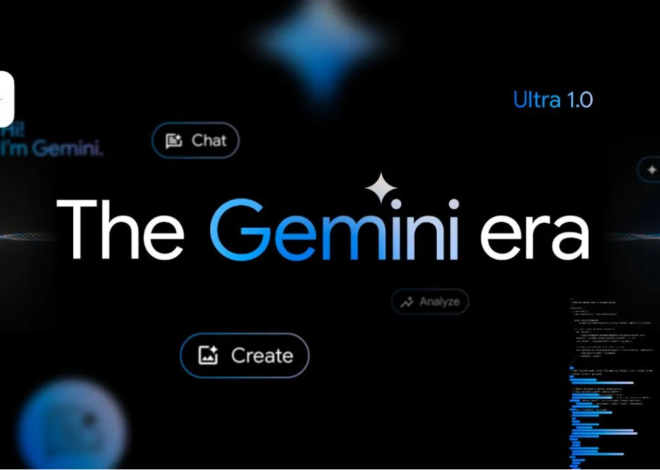
Technology expert warns humanity is at risk from the ‘race to the bottom’ of artificial intelligence
According to MIT professor who wrote an influential letter, the continued development of artificial intelligence is jeopardizing society’s future.
Several technology companies are endangering the future of humanity with their unchecked advancement in AI, and they must cease their relentless pursuit of more powerful systems, as emphasized by the scientist who initiated a significant letter advocating for a temporary halt in their development.

Max Tegmark, a distinguished professor of physics and a researcher in the field of artificial intelligence at the Massachusetts Institute of Technology, has expressed his concerns about what he sees as a concerning trend. He believes the world is currently caught in a “race to the bottom” that requires immediate intervention. Tegmark was instrumental in coordinating an open letter, published in April and endorsed by numerous prominent figures from the technology industry, including Elon Musk and Apple co-founder Steve Wozniak. This letter appealed for a temporary, six-month pause on the pursuit of large-scale AI experiments.
Read Also | Constructing Intelligence: The Role of AI in Construction
Tegmark expressed his deep concerns to TheOrcTech, stating, “We’re currently witnessing a troubling ‘race to the bottom’ that must be brought to a halt. We must establish robust AI safety standards to transform this competition into a ‘race to the top.’ While AI holds incredible potential, the unrestrained and reckless development of increasingly powerful systems, without proper oversight, poses significant risks to our economy, society, and individual lives. Regulation is essential to ensure innovation takes place safely, preventing a handful of AI corporations from compromising our collective future.”
In a recent policy document, 23 AI experts, including influential figures often referred to as “godfathers” of the technology, emphasized the necessity for governments to possess the authority to intervene in the development of exceptionally potent AI models.
Gillian Hadfield, one of the co-authors of the document and the director of the Schwartz Reisman Institute for Technology and Society at the University of Toronto, pointed out that AI models with significantly greater capabilities are currently under construction and are expected to surpass existing systems within the next 18 months.
Also Read | How roboticists are thinking about generative AI
Hadfield highlighted a critical concern, stating, “Several companies have ambitious plans to train models using 100 times more computational power than what is considered state-of-the-art today, all within the next 18 months. The extent of their potential capabilities remains uncertain, and there is virtually no regulatory framework in place to govern the applications and functions of these advanced models.”

The paper, authored by prominent figures in the field of AI such as Geoffrey Hinton and Yoshua Bengio, both recipients of the prestigious ACM Turing award often likened to the “Nobel prize for computing,” advocates for a comprehensive regulatory approach. It argues that highly advanced AI models should be subject to government licensing, and when necessary, their development should be temporarily halted.
The paper states, “For exceptionally capable future models, for instance, models with the potential to operate beyond human control, governments must be prepared to grant licenses for their development. They should be ready to pause the development of such models in response to concerning capabilities, enforce access controls, and mandate stringent information security measures that can withstand state-level hacking attempts until sufficient safeguards are in place.”
The unbridled progress in creating artificial general intelligence, which refers to systems capable of performing a wide array of tasks at or above human levels of intelligence, is a central concern for those advocating for stricter regulations.
In recent developments, Amazon announced an investment of up to $4 billion in Anthropic, a start-up founded by former OpenAI executives, with plans to utilize proprietary data on Amazon’s cloud services. While Amazon has not disclosed its ownership percentage in Anthropic, it is believed to be a minority stake in the company, which was valued at approximately $4 billion. Notably, Anthropic is currently facing legal challenges from music labels regarding alleged copyright infringement related to the use of song lyrics.
Also Read | DMV suspends Cruise’s robotaxi license immediately
The Amazon-Anthropic deal represents a significant move by the e-commerce giant to compete with industry leaders such as Microsoft and Alphabet, both of which have made substantial strides in cloud services and AI.
Microsoft, for example, has made a substantial $13 billion investment in OpenAI, the organization behind widely popular AI technologies like the ChatGPT chatbot and the image generator DALL-E 3. This investment follows an initial commitment of $1 billion in 2019. OpenAI, founded in 2015, was valued at $29 billion earlier this year and is speculated to potentially reach a valuation of $86 billion, reflecting its impressive growth in a short span.
Alphabet’s Google, on the other hand, has invested approximately $120 billion in artificial intelligence and cloud computing since 2016, as reported by Bank of America. These investments include UK-based DeepMind Technologies, generative AI tools like Language Models for Dialog Applications (LaMDA), and consumer-facing innovations such as Bard. Google has not only invested in standalone AI products but is also integrating generative AI into some of its most widely used software, including Google Search, Gmail, Google Maps, and Google Docs.
Alphabet’s CEO, Sundar Pichai, has emphasized the profound impact of AI in opening new opportunities that can significantly improve the lives of billions of people. He sees AI as a key means to fulfill the company’s mission of organizing and making the world’s information universally accessible and useful.
Meta, the parent company of Facebook, has shifted its focus from the metaverse to AI, intending to invest $33 billion in 2023 to enhance its AI capabilities, particularly centered around its open-sourced Llama set of large language models. Mark Zuckerberg, the CEO of Meta, envisions introducing AI agents to billions of people in ways that are meaningful and useful. Their AI investments are primarily aimed at strengthening recommendations and ranking infrastructure for their various products and developing new generative foundation models for innovative products and experiences.
Read Also | My Life With the Meta Quest 3: The Best VR Headset for the Moment
Meta’s financial performance has been bolstered by the increased use of AI recommendations, leading to strong ad revenue results of $28 billion for its “family of apps” segment, which includes Facebook, Instagram, Messenger, and WhatsApp. This success has contributed to a significant increase in the value of Meta shares, which have more than doubled in 2023.
The surge in headline investments in AI is just one facet of the larger AI investment boom. A report by Goldman Sachs in August projected that the AI sector could witness an influx of up to $200 billion globally by 2025. The report anticipates that generative AI will drive significant transformations in both businesses and society, leading to a boost in global productivity and GDP.
The report notes, “Breakthroughs in generative artificial intelligence have the potential to bring about sweeping changes to the global economy.”
Also Read | Meta AI Assistant and Facebook-Streaming Glasses Revealed
Investment in new AI companies is experiencing a substantial multibillion-dollar surge, surpassing other categories in tech. In the third quarter, global funding for AI startups reached nearly $18 billion, marking a 27% increase compared to the same period in the previous year. In contrast, funding for tech startups experienced a 31% decline, totaling $73 billion worldwide during the same timeframe, according to data compiled by the firm PitchBook for Bloomberg. This data underscores the growing prominence of AI in the tech investment landscape and its potential to reshape the business and economic landscape.












